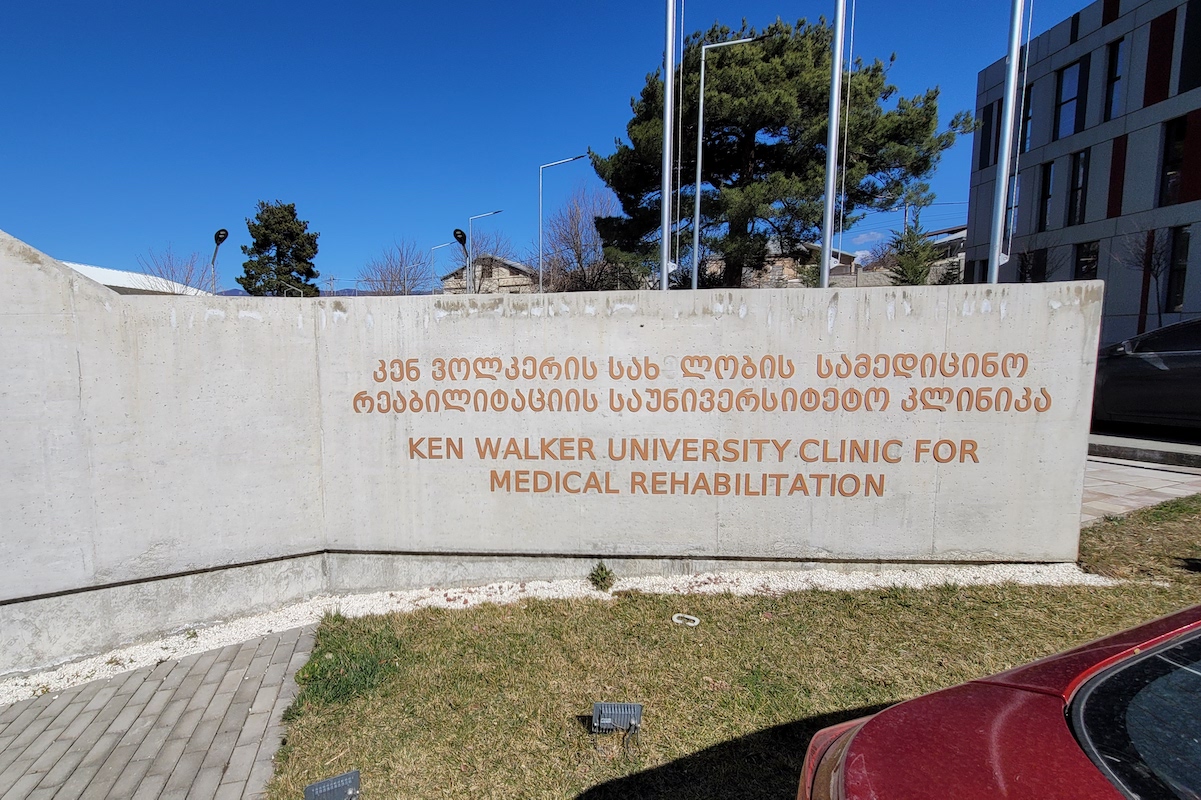Emory’s School of Medicine (SOM) and the Partners for International Development marked the 30-year partnership between Emory University and the country of Georgia by hosting a celebration in Tbilisi this spring. The event featured speeches by the Minister of Education and Science of Georgia, the U.S. Ambassador to Georgia, Emory Vice Provost of Global Strategy and Initiatives Philip Wainwright, SOM faculty Mary Jo Lechowicz and Gordon Churchward, and Archil Undilashvili, who has been instrumental in fostering the relationship over the last two decades.
Underlying the celebration was a tribute to the late Ken Walker, a physician and former Emory professor who played a crucial role in developing Emory partnerships in Georgia. Walker was granted honorary citizenship from Georgia for his work, and he was well known in the Georgian community for his deep involvement and care for citizens’ well-being.
In 2018, Walker received Emory’s most prestigious alumni award, the Emory Medal, which recognizes leaders in their fields and in their local, national and global communities.
Emory School of Medicine involvement in Georgia
Emory’s engagement with the country of Georgia dates to before the collapse of the Soviet Union, with the earliest memorandum of understanding signed between Emory and the Georgian government in the late 1980s.
Following the breakup of the Soviet Union in 1991, the U.S. Department of State began supporting partnerships between the United States and former Soviet countries that were newly independent. In June 1992, the SOM dean was approached to investigate partnership opportunities with Georgia’s health care system. This work was led by Walker, who first visited Tbilisi in August 1992 with health care professionals from Emory and Grady Memorial Hospital.
The partnership between Emory and the country of Georgia has substantially impacted the development of modern medical and educational programs in the country.
“Dr. Walker understood the importance of this opportunity and strengthened it by involving multidisciplinary teams of faculty and students for continuity and sustainability,” says Undilashvili. “A significant number of high-impact research projects conducted by Emory faculty and students, in collaboration with their Georgian peers, resulted in important policy decisions for newly-independent Georgia and provided immense experiences to our colleagues and students on both sides of the ocean.”
Achievements of the collaboration include implementing a nationwide emergency response system and improvements in trauma and critical care, exemplified by the establishment of the first pediatric and adult emergency rooms in the post-Soviet world and the development of the emergency medicine specialty in Georgia. These initiatives were led by Emory and supported by the United States Agency for International Development (USAID). Other major initiatives, also funded by USAID, resulted in a robust and ongoing program for training nurses, organizing a maternal and childcare network, and developing modern rehabilitation services.

The sign at the entrance to the Ken Walker University Clinic for Medical Rehabilitation, featuring both Georgian and English.
A major $4.5 million initiative funded by USAID to develop and promote physical rehabilitation in Georgia was completed in March 2022. The project is a “model example” of how USAID projects should work, according to Churchward. He commends Undilashvili’s efforts to bring the project to completion despite the pandemic.
Within the framework of this collaborative agreement between Emory and USAID, the Ken Walker University Clinic for Medical Rehabilitation was established in Tbilisi and Batumi. The Early Childhood Development Academy was also established at Tbilisi State Medical University. The most recent development is the Ken Walker International University in Tbilisi, which aims to create a high-quality, affordable educational hub for students from around the world.
Since 2007, more than $7 million has been allocated for these activities. The collaboration evolved into a larger partnership, taking advantage of funding opportunities from organizations such as the National Institutes of Health (NIH) in the fields of AIDS, hepatitis C and tuberculosis treatment and prevention. Emory has supported the establishment of a U.S.-style MD education program at Tbilisi State Medical University (TSMU) since 2011. “The USMD program would not have become a sustained success without the efforts of Dr. Eka Ekaladze of TMSU and professor Mary Jo Lechowicz of SOM,” says Churchward. “Our Georgian colleagues make wonderful partners and together we have been able to do great things.”
Other Emory connections with the country of Georgia
Emory’s work with the country of Georgia is not limited to the School of Medicine. As of fall 2022, at least 21 grant-funded projects pertaining to Georgia were active and more than 35 faculty members engaged with the country in some capacity.
For example, Emory's School of Law and the Georgian government have worked together on student recruitment and NIH-funded tuberculosis research and training involving professors from the School of Medicine and Rollins School of Public Health are in place. Medical students from Georgia visit Atlanta each year to study and engage with Emory faculty.
During the 30-year celebration, a group of Emory-Georgian alumni met with Emory faculty and staff to discuss plans to establish an alumni network and recruit more students from Georgia.
Two Emory-Georgian alumni at the 30-year celebration.
Emory hopes to capitalize on its name recognition and strengthen its ties there. As vice provost Philip Wainwright shared, although Emory is engaged in dozens of countries globally, “Georgia has been one of its strongest and most consequential partnerships.”
The Emory and Georgian faculty involved in the partnership remain optimistic about future collaborations in health and education. Undilashvili says, “The Emory-Georgia collaboration is a demonstration of how sharing knowledge and experience can improve the quality of life for the population by strengthening the medical and education systems of developing countries.”

